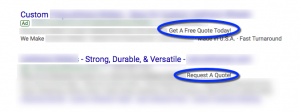
You probably heard this often throughout your blogging life:
“You don’t blog enough!”
“You should write more often.”
“You never update your blog. It’s boring.”
Blogging frequency is one of the most talked aspect of blogging on the Web. If it’s true that 46% of people read blogs more than once a day (HubSpot Science of Blogging, 2010), it’s also true that readers will feel overwhelmed by too much to read if you post every day, several posts a day. Overwhelm might push them to unsubscribe in order to relieve the pressure.
You don’t want that.
3 Myths About Blogging Frequency
1. You should blog every day
You can, but you don’t have to.
You may have the time, ideas and energies to post every day, but your readers may be unwilling to follow your hyperactive posting schedule.
2. You should write 2,000+ words posts every time
Do you have enough material to make your posts 2,000+ words every time?
Look at my posts here at Bosmol. Look at Brandon’s and Lavinia’s, too. Can you find too many huge posts?
When you made your points and expanded upon each, added research and expert quotes, some screenshots and images if necessary… you are done.
Don’t stretch your posts to make them 2,000+ words at all costs. If the topic is narrow and you have to add fluff to turn it into a long piece, don’t — a shorter, clear, to-the-point post is a thousand times better for your readers.
3. If you don’t blog frequently, you will lose readers
Blogging infrequently — once a week or every 10 days — will not lose you readers if you give them a reason to wait for you.
Are your posts always top notch in terms of content quality, research and insight? Do you go out of your way for your readers with interviews, case studies and well-crafted, helpful posts?
If you do that, you don’t have to worry about blogging “only” 3 times a month or less.
3 Tips To Blogging Success
1. Blog when it’s relevant (or you have something to say)
Write when you have something to share with your readers, be that an interview or a series of tips on how to face a recent problem that affected the entire blogosphere.
Blog when it’s relevant to you and your readers — if you have nothing relevant to share this week, or if your ideas are not fully mature yet, don’t write — instead, work on promoting your old blog posts to keep your new readers’ interest alive and to spark discussion around you topics in your community.
2. Involve others (interviews, brainstorms, Q&A, poll-based, etc.) at least once a month
Your view of things may be interesting, but your readers may want more, need more, in order to shape an opinion on certain topics.
Also, other people may add expertise and experience you simply don’t have.
Write a blog post a month based on interviews, brainstorms, Q&A sessions or polls and surveys you sent out — you can use services like HARO or MyBlogU for this purpose. What’s important is that you offer your readers something of quality they can learn from and use.
Be selective of the data and quotes you use for your articles — even if you interviewed, say, 10 people, but only 5 answers were worth quoting in your article, just quote those. Don’t add irrelevant information that distracts the reader and disorient them.
3. Welcome relevant guest posts
Guest posts lessen your blogging ‘burden’ and offer your readers different opinions and alternative views of a certain topic.
Also, you will boost your social media and search engine presence because guest posts attract not just your audience, but even the guest writer’s.
It’s a win-win situation. Just make sure you are offered quality ideas and posts before you publish them. Even better if you and your guest writer work together from pitch to final draft.
How often do you blog? How do your readers respond to your posts?
Share your experience in the comments below.
Digital & Social Articles on Business 2 Community(15)





